Lavender Phenomenal is one of the hardiest evergreen lavenders around. It handles heat, humidity and rough Winter weather with ease! Learn why you will love this lavender!
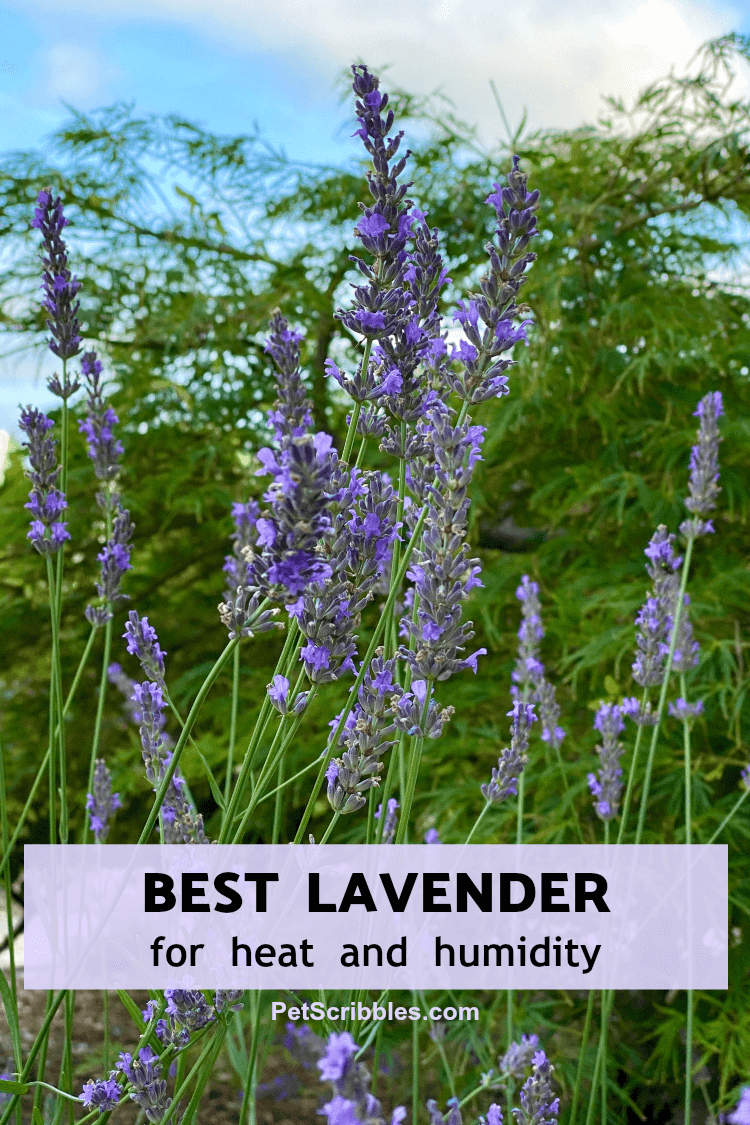
A few years ago, I wrote an article here about how to harvest lavender the easy way.
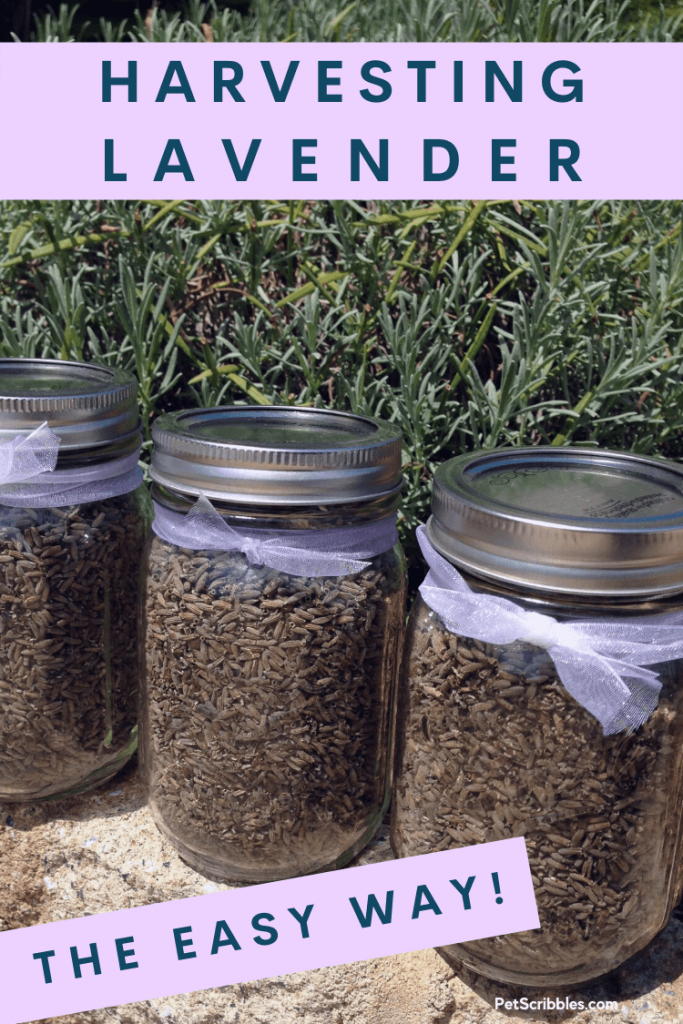
A reader asked what type of lavender I had in my garden, and I realized I needed to do an article on here about my favorite lavender that we grow.
It’s called Lavender Phenomenal — sometimes Phenomenal Lavender — and I think its name is perfect!
Phenomenal, in fact!
Lavender Phenomenal Highlights
Lavender Phenomenal — or you can also call it Phenomenal Lavender — is one of the hardiest lavenders around! Many gardening experts say it may be the toughest lavender there is!
In fact, Lavender Phenomenal is an evergreen perennial shrub, so you’ll have color year-round!
This lavender can easily handle heat and humidity, which makes it perfect for any part of the country where humid Summers can be tricky for other varieties of lavender.
Lavender Phenomenal has great disease resistance.
Rough Winter weather is also not a problem for this Lavender. It maintains its color in Winter when most other lavenders would suffer and die back.
I’m in zone 7b here in southern New Jersey, and Lavender Phenomenal stays evergreen for us. It has a pretty gray-blue color in Winter, shifting to more of a gray-blue-green in Summer.
I’ve seen it called “ever-gray” instead of evergreen. I like that!
The secondary appeal — at least for me — is that Lavender Phenomenal was discovered, developed and bred by Lloyd Travan at his Peace Tree Farm in Pennsylvania. I love that a tough lavender was cultivated right here in the United States!
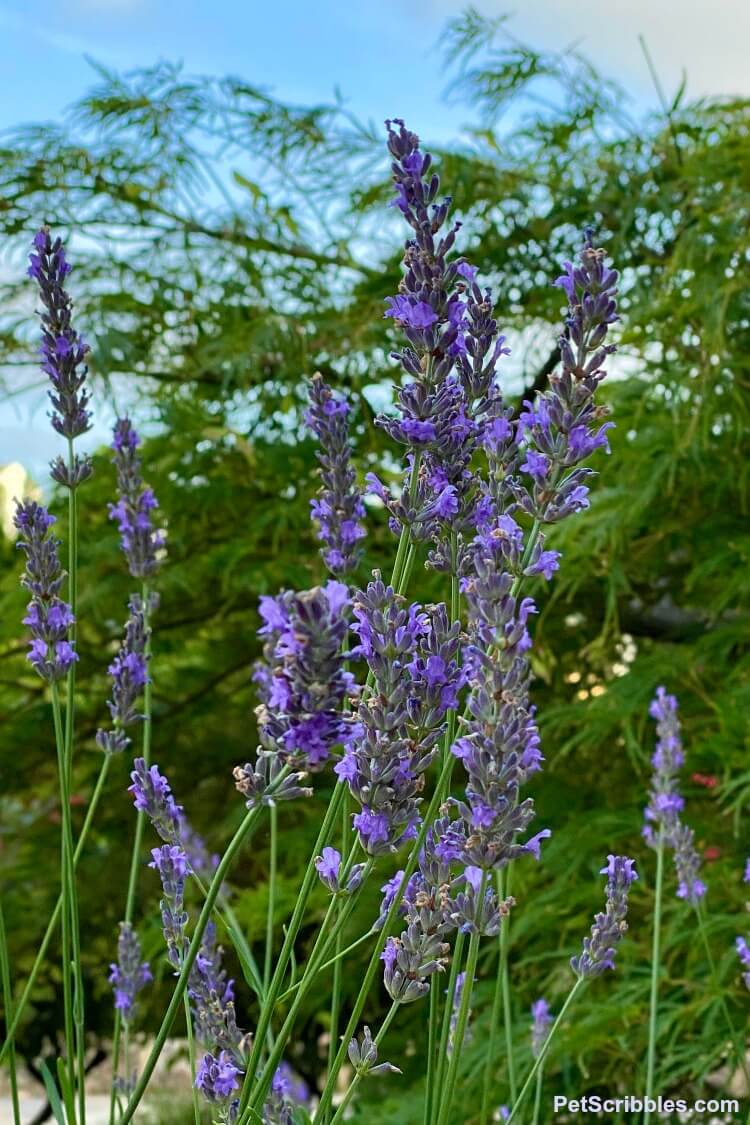
How to care for your Lavender Phenomenal
USDA Hardiness Zones: 5 through 9 or 10.
Helpful tip: I find that zone numbers for Lavender Phenomenal vary on different garden websites. Your local nursery experts will know best what will grow in your specific region.
Soil: This lavender is such a hardy and reliable perennial and doesn’t need any type of fancy care for it to thrive, other than it doesn’t like heavy wet soils like clay.
We have clay soil — but we amended our soil a few years back with compost and manure and the lavender is happy and thriving!
Make sure your soil has good drainage.
Soil pH: Neutral to alkaline soil is best. Lavender Phenomenal can also tolerate lightly acidic soils that some other lavenders might not. The specific pH numbers vary depending on who you ask, but somewhere between 6.5 and 8 — if you are looking for specific numbers.
Water: doesn’t require much. Just make sure to give it adequate water when first planted.
I find that perennials in general need more water during their first planting season than they will require in subsequent seasons as their roots expand and the plant matures.
Sun: full sun is best.
Fertilizer: Lavender (in general) does not require fertilizer, as it grows best in lean soil. However, adding some slow-release organic fertilizer around the perimeter of the plant will benefit the soil (and plant) over time without any harm to the actual plant. (I use Espoma Plant-tone.)
Size: grows up to 2 feet to 3 feet tall and wide, with 5-inch long flower spikes.
Resistant to: deer, rabbits, squirrels
Attracts: bees and butterflies
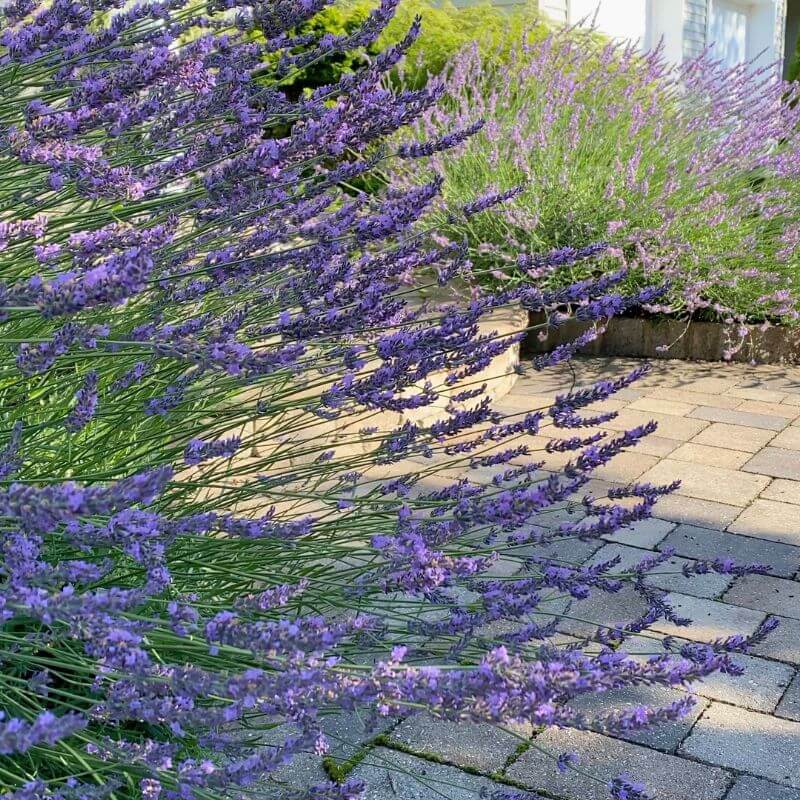
Trial and Error
In the past, I grew a few other varieties of Lavender in our backyard and had some success with them.
I tried the Munstead and Hidcote varieties, and grew Spanish Lavender as well. These lavenders didn’t always survive the Winters here, and what DID survive definitely looked ragged by the Springtime.
Try, try again — Fall 2014
We planted our Lavender Phenomenal back in September 2014, when we had our front yard grass removed and lots of garden beds and pavers installed instead.
It was a major renovation and makeover, with a few minor blips along the way. (Read my top tips on planning a landscape makeover.)

I was impressed with these little plants over the Winter months, as they seemed to keep their color, but I still wondered if they would survive.
How Lavender Phenomenal looks in Spring
The Lavender did survive, and looked good the following Spring (2015):
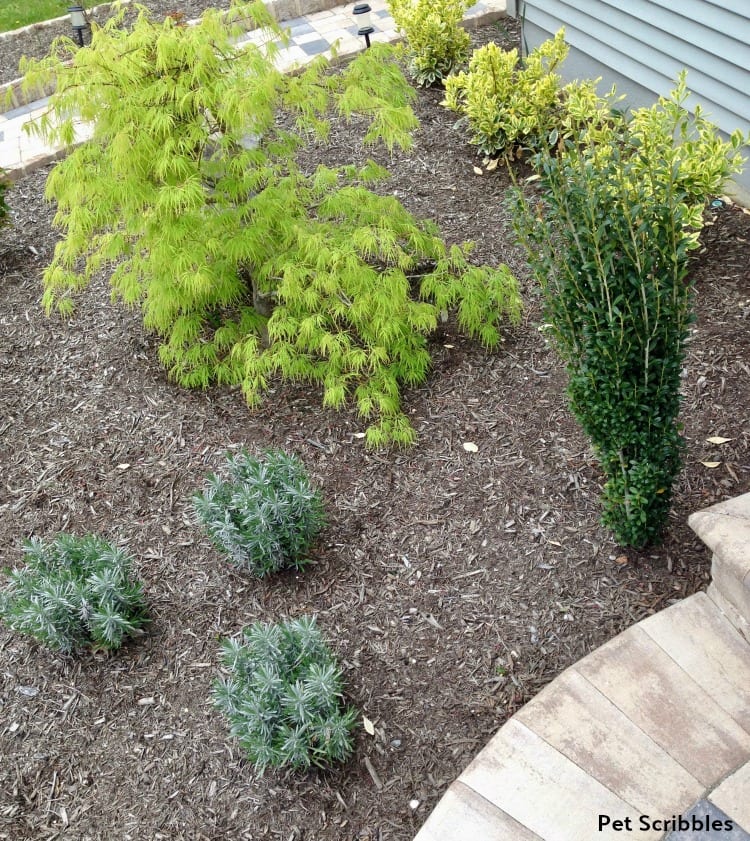
Beautiful Summer Color!
By July of 2015, these small plants had grown gorgeous lavender stems. Our first flowers on these young plants!
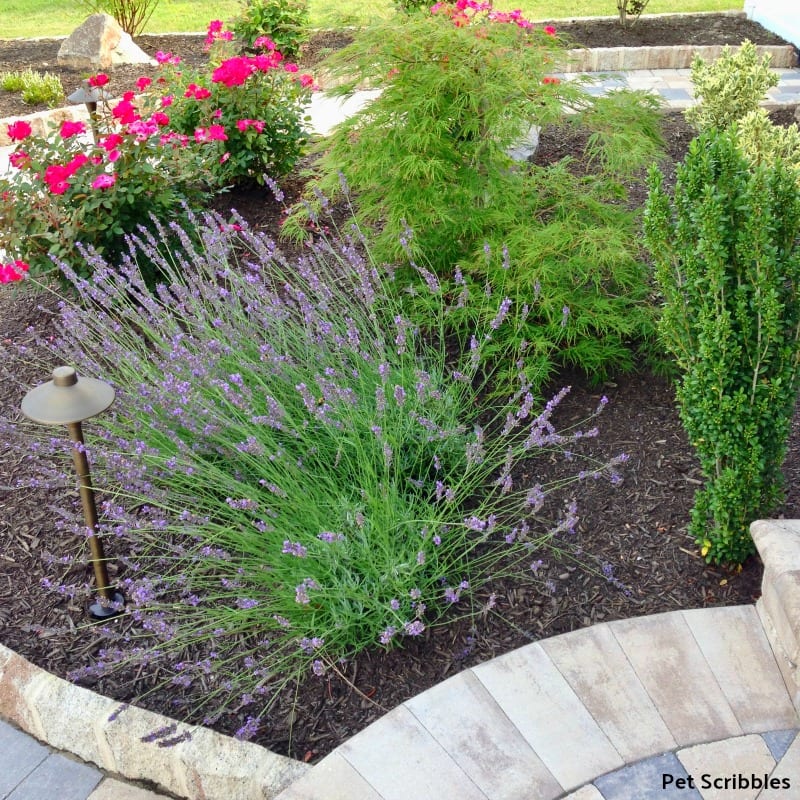
This Lavender bloomed reliably all Summer long and into the Fall.
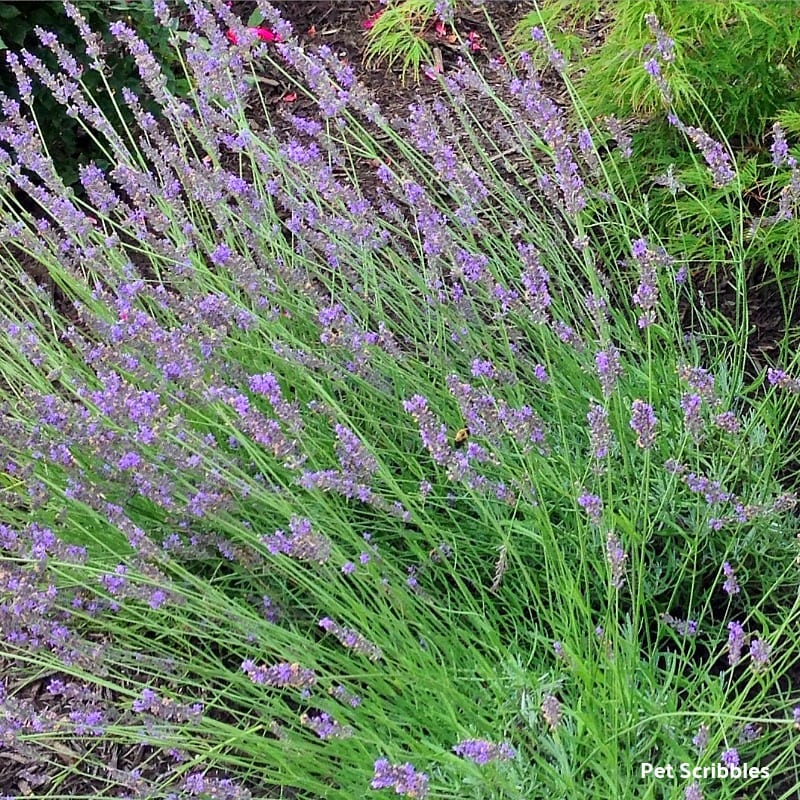
Oh these special lavender flowers
Phenomenal Lavender is a reliable bloomer with a long blooming period.
The Lavender scent is wonderful: strong but not overwhelming. Lavender Phenomenal has a high content of essential oils, which contributes to its amazing scent.
The color is stunning! You get that color year after year, with no fading from the sun like I’ve experienced with some other Lavender varieties.
Lavender Phenomenal flowers: fresh cut or dried
You can cut the stems for pretty cut flowers that will last a long time in a vase, or leave the flowers to dry on the stems for an even longer color show.
As the Lavender flowers dry on the stems, they continue to look lovely in the garden!
Dried lavender is easy to harvest — see my easy how-to post here — and can be used for crafts and potpourri.
Pruning
In the beginning, I was good about pruning my Lavender in the Fall by removing the dried stems plus shaping up the shrubs a bit. After pruning, the color is still so pretty and everything is neat and tidy, ready for the Winter.
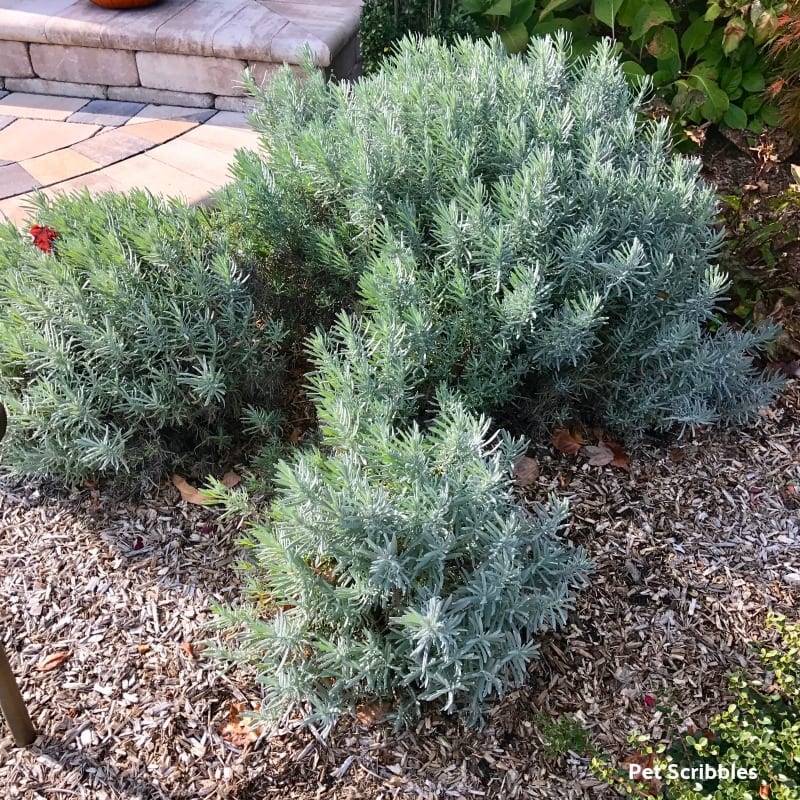
However, over the years I didn’t prune them as far back into the plants as I should have. This was a mistake — and you can learn from my mistake so this doesn’t happen to you.
I have an in-depth article on When, Why and How to Prune Lavender. You’ll find easy tips and clear explanations that work for any type of Lavender you’re growing in your garden.
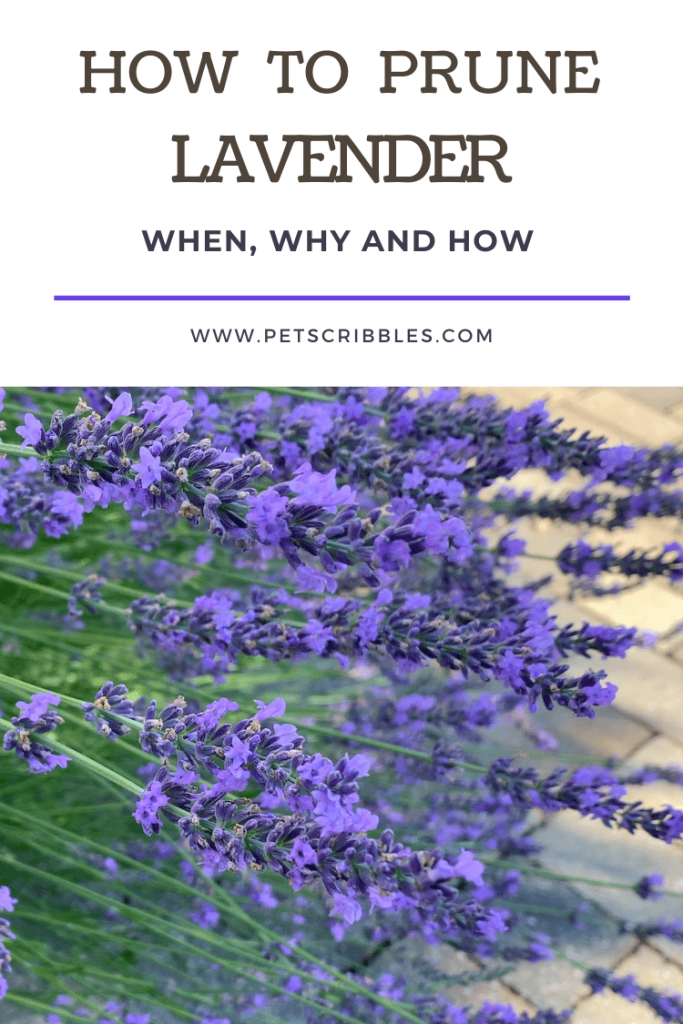
Lavender Phenomenal in Winter
We had a harsh Winter this year plus quite a few late Winter-early Spring snowstorms that brought heavy, wet snow that crushes plants if not brushed off.
Yet our Phenomenal Lavender was just fine!
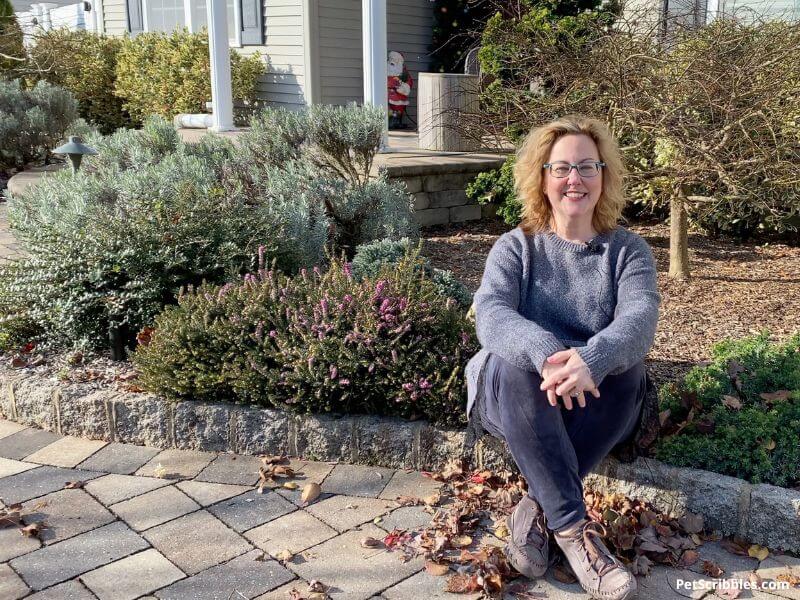
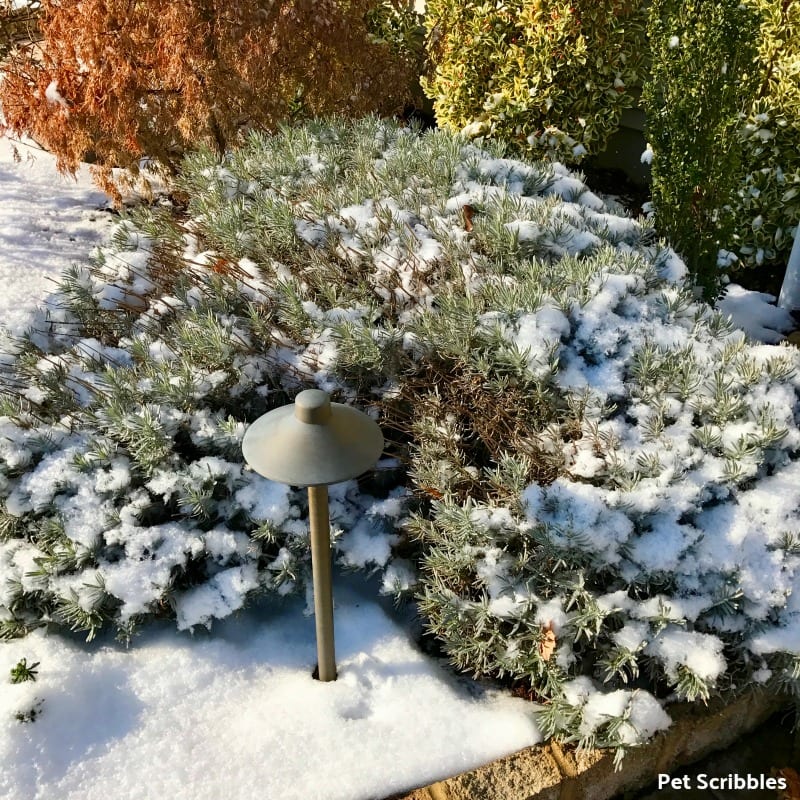
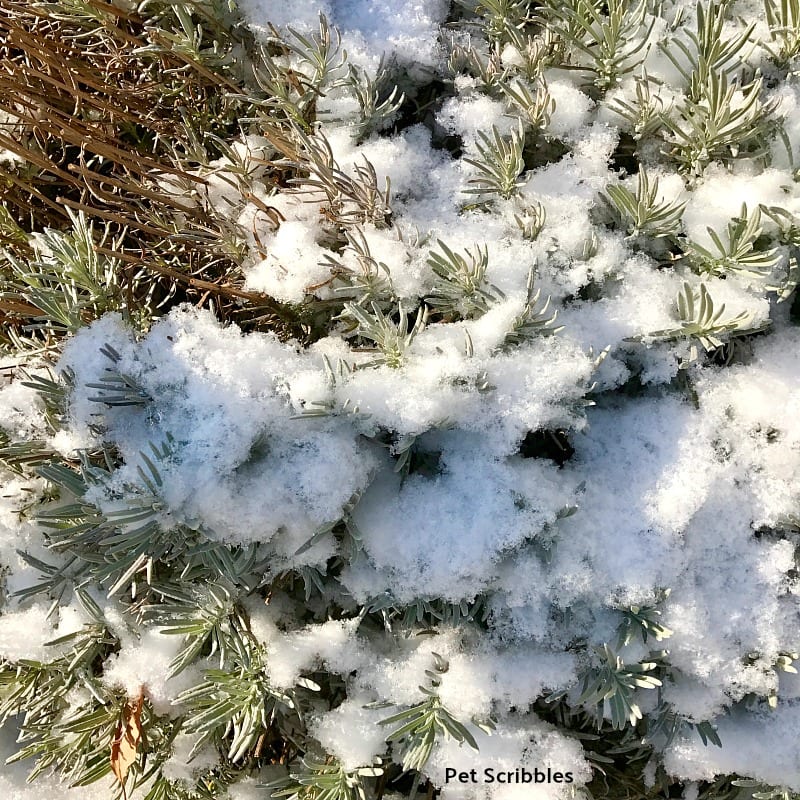
By the end of the Winter, there’s more of a blue-gray cast to the plant.
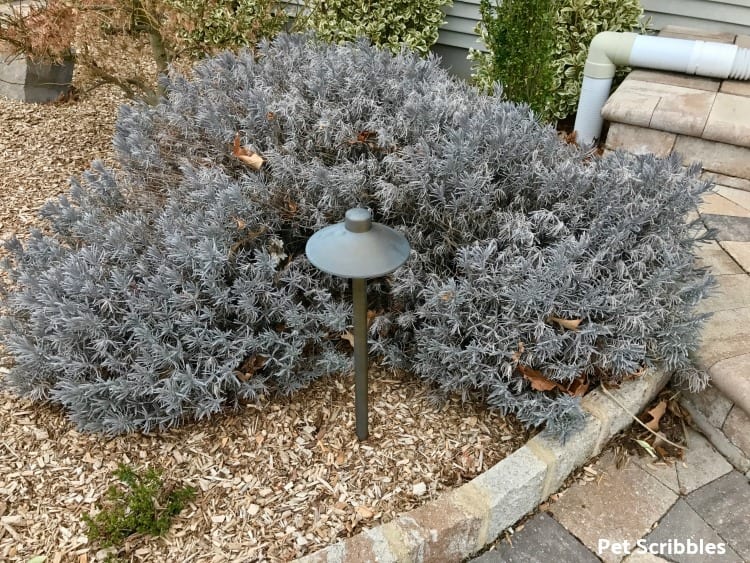
Lavender Phenomenal in Spring
I love how the color of Lavender Phenomenal accents early blooming evergreen perennials each Spring, like the white Candytuft flowers and the magenta Kramer’s Red Winter Heath below.
2017: two years after planting
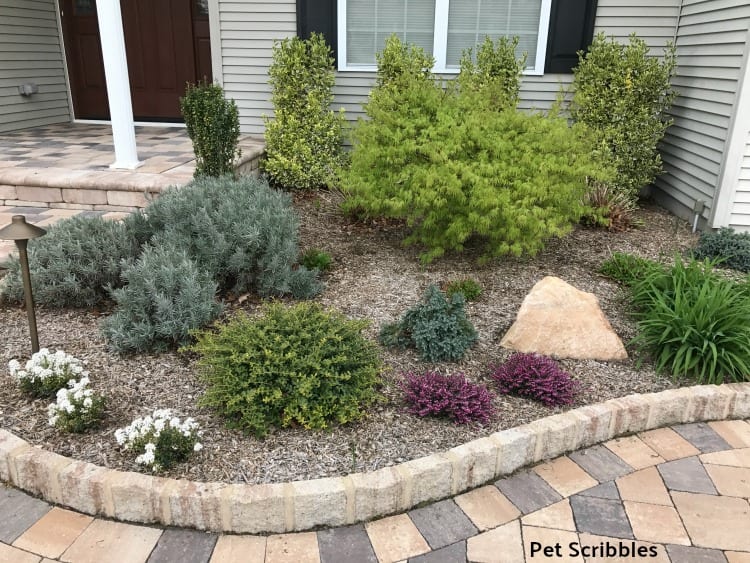
2020: five years after planting
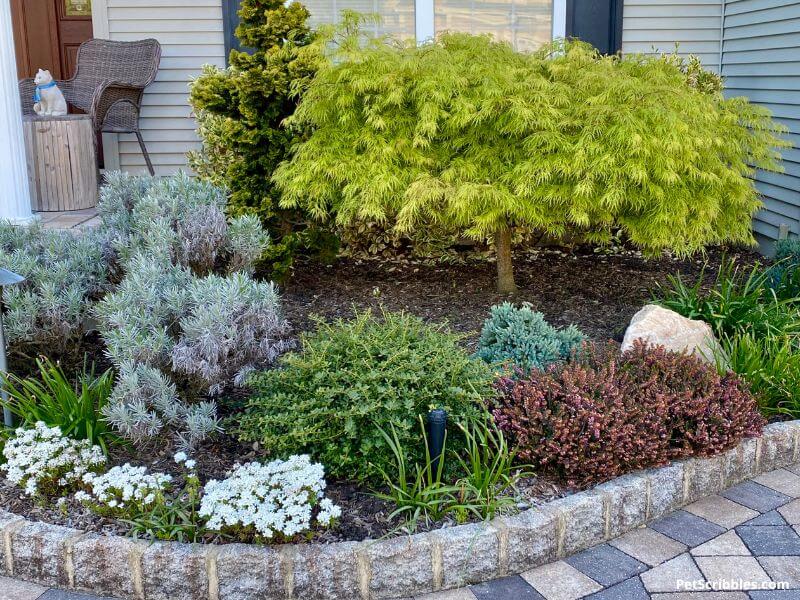
Here’s how the Lavender looks in the background (below, top of photo) in Spring with Daffodils and blooming Winter Heath (2022):
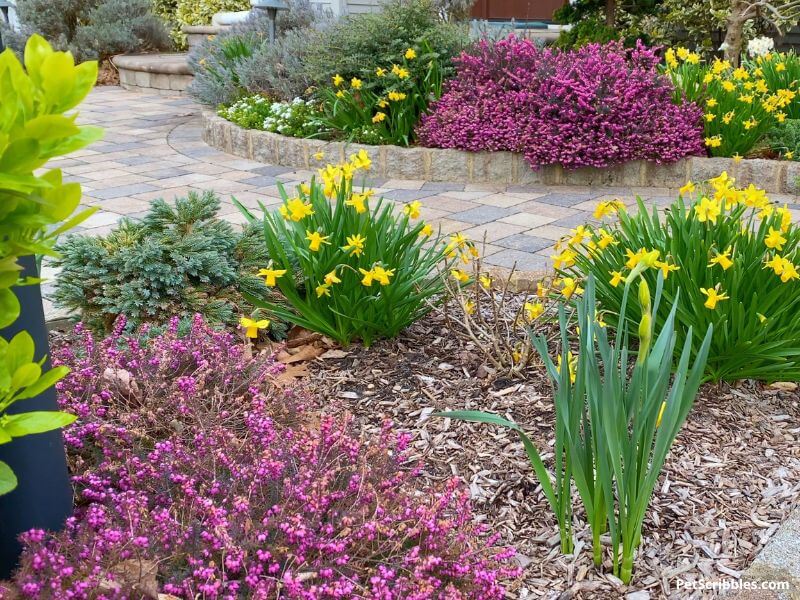
The new growth begins in early May:
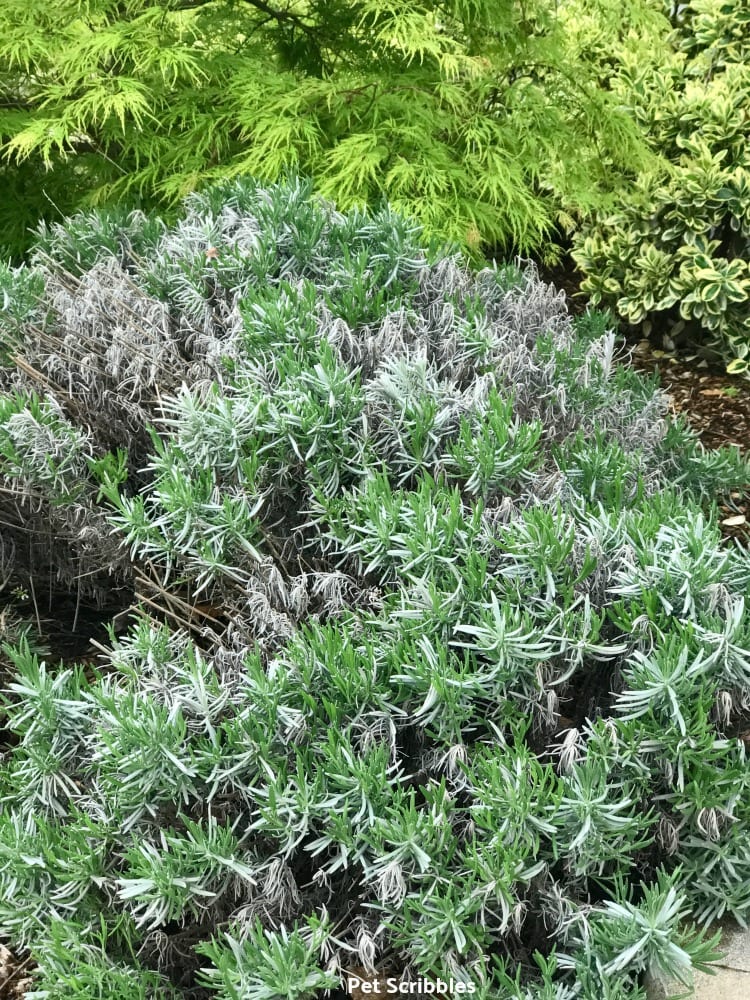
I love the color contrast between the green leaves of the ornamental Japanese maple and the Phenomenal Lavender:
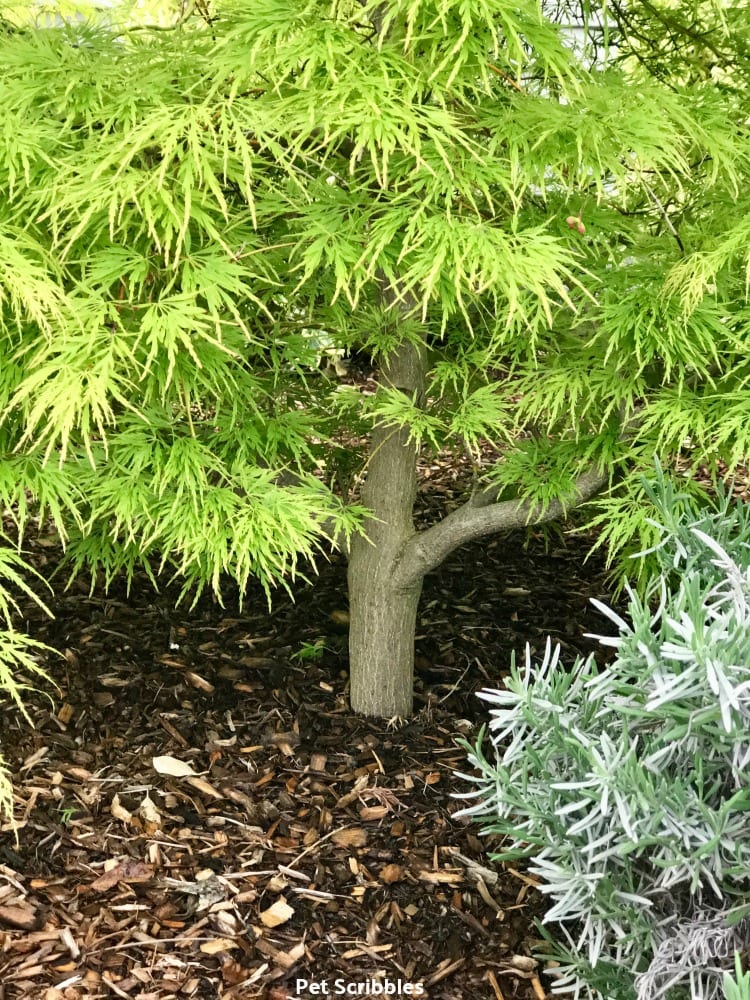
By the end of May, stems are visible!
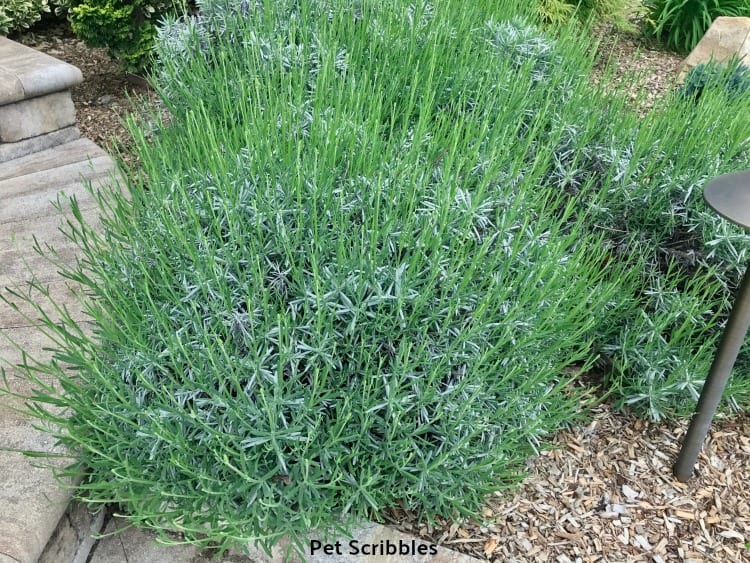
The hint of blooms is also visible:
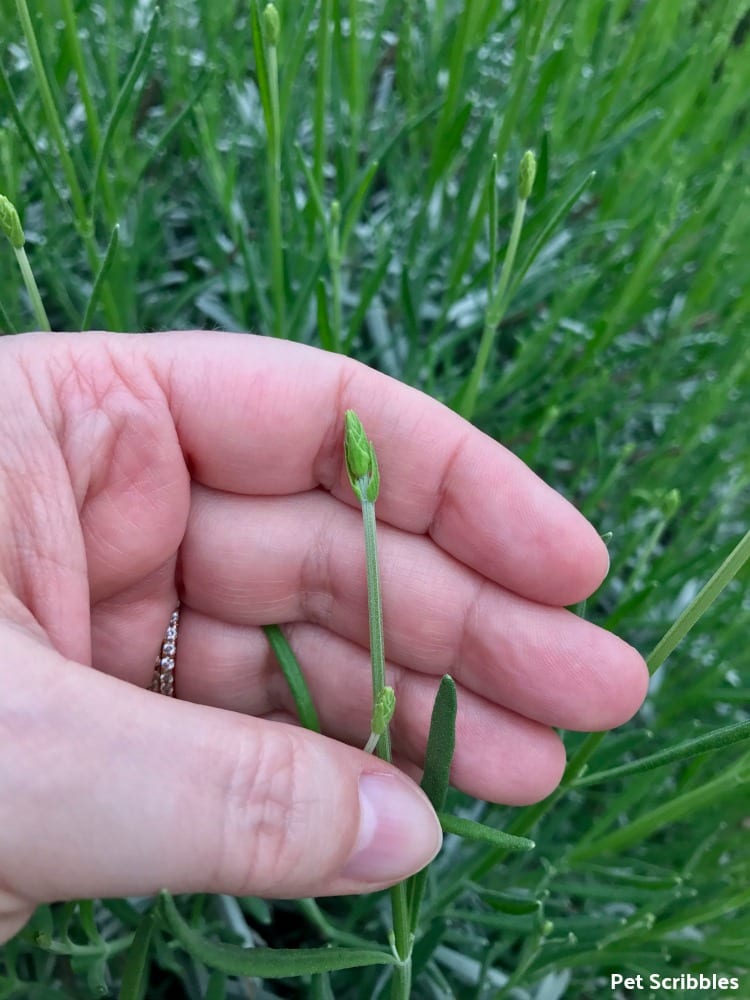
Lavender Phenomenal in Summer
When the plants are in full bloom, it’s like having your very own Lavender field in your garden.
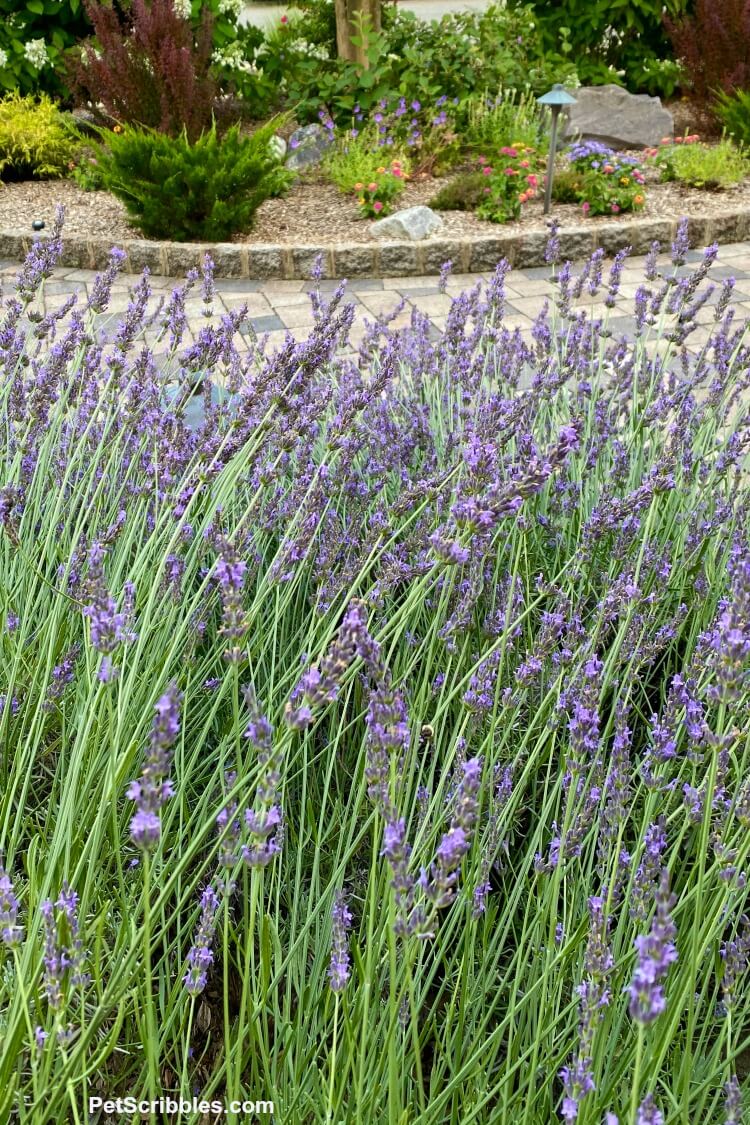
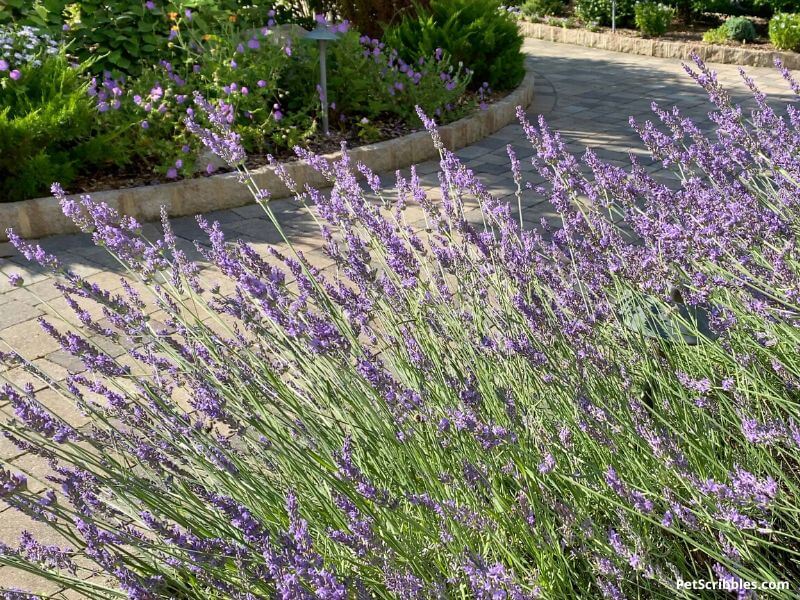
Here is how our Lavender looks seven years later in 2022!
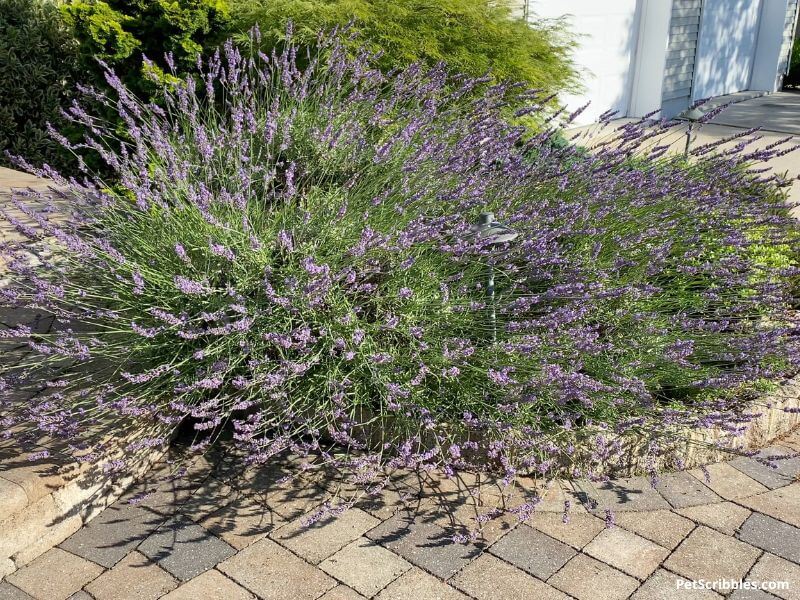
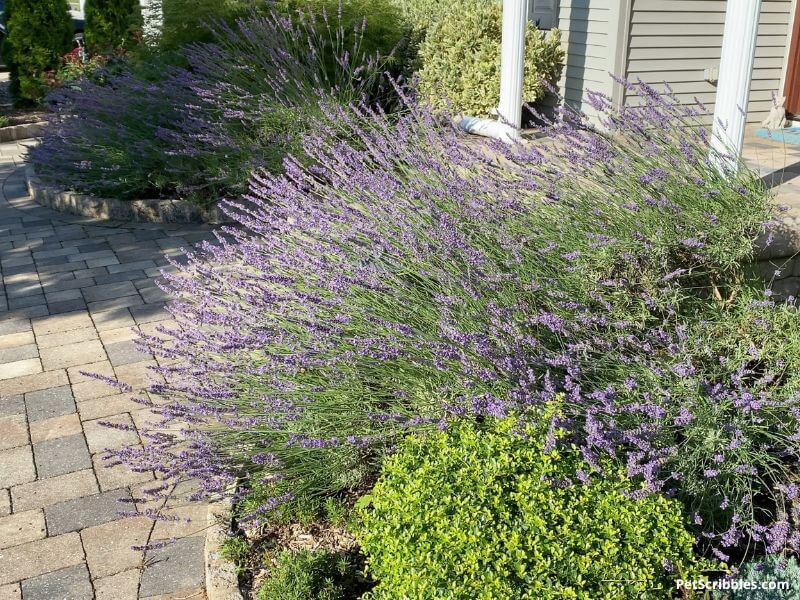
Lavender Phenomenal in Fall
In the Fall season, Lavender Phenomenal provides a background color to the brighter Autumn hues of pumpkins and Fall foliage, plus the Knockout Roses still going strong.
The Lavender behind me (below) has grown rather large as I wasn’t pruning it back enough. (See my pruning article to learn what I should have been doing instead!)
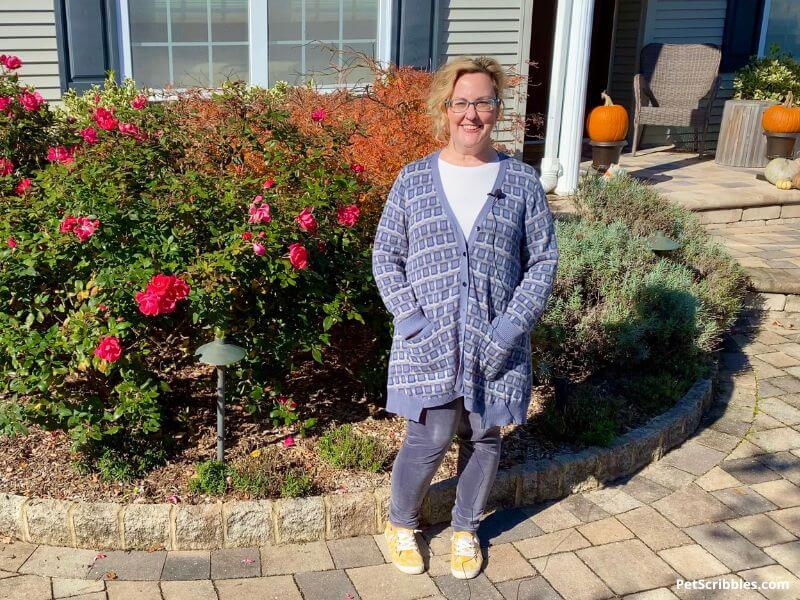
In this photo below, you can really see just how much the Lavender has grown with minimal pruning, as well as how much it has spread over the years.
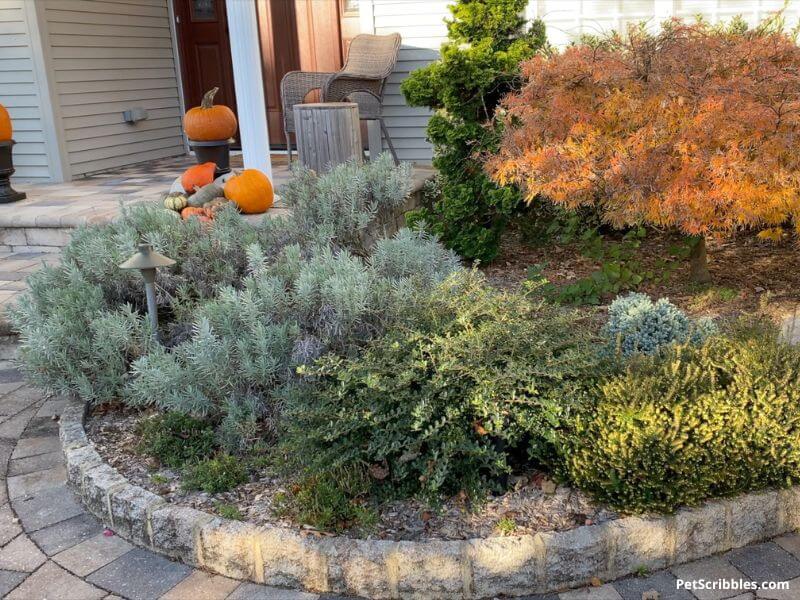
Enjoy this video I made of Lavender Phenomenal in full bloom!
Gorgeous, right?
So there you have it:
The best lavender for heat and humidity is Lavender Phenomenal!
Happy gardening!

Leave a Reply